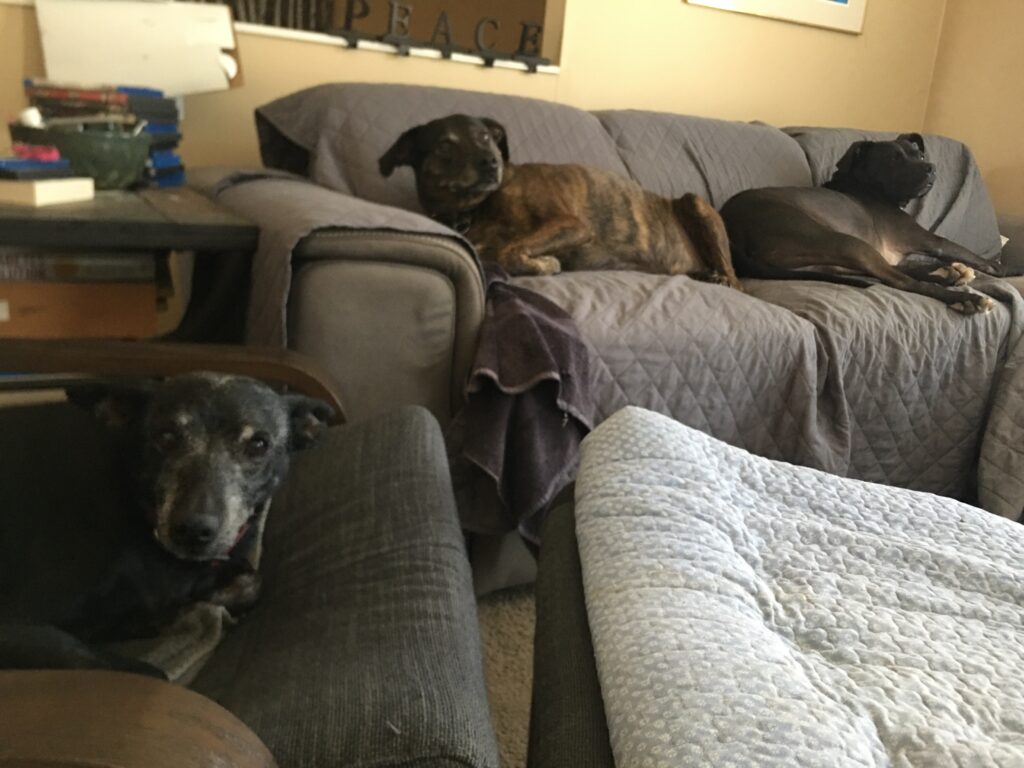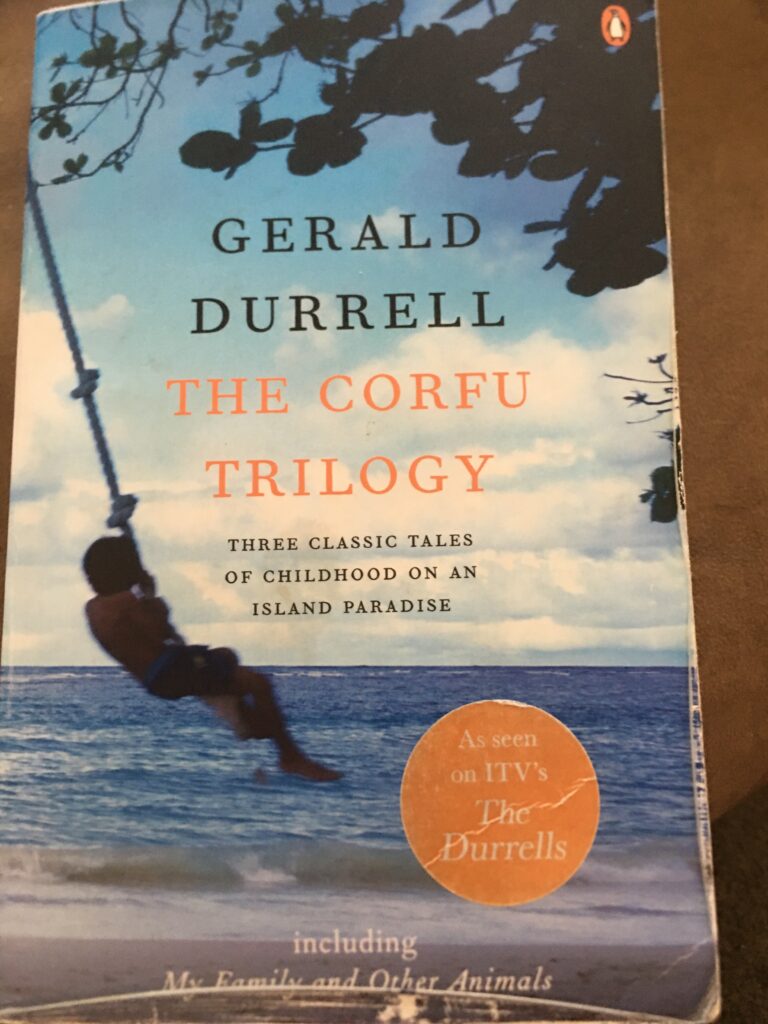Corfu or Bust
My voice startles the dogs, who lie scattered across chairs and the sofa (conspicuously NOT on their designated bed lying unused at the end of couch). I have taken to reading aloud, at least certain titles. Perhaps they think I have gone daft.

At first, a stratagem to differentiate between books (I tend to read several simultaneously). It helps to segregate content and narratives. In order to minimize self-inflicted confusion — I find it an helpful approach to come at multiple books from different vantages. One trick — geography: read one title, and one title only in a particular local. e.g. poetry or essay in the ‘library’ (a term of endearment). Shorter pieces lend themselves to a more truncated timeline (lest one aggravate cohabitants by bogarting of the shared facility). MY chair: it is where I spend the most of my time, and where I do most of my reading. There is a ledge along the fireplace handy for making a stack. Here, I keep volumes suitable to more prolonged immersion: a selection or two (or three) to meet the demands of temperament and whim. The car: with a family, one is often left waiting. And god forbid that I should experience a roadside stranding without something to distract. My satchel: I keep this one for work — one would think in owning a bookstore, this would not be a thing, but it is. Like when confronted by one of those hotel or cruise-line buffets, the ones that stretch for yards and present a befuddling cornucopia of: finger foods, pasta, deserts, salads, entrees, etc., too many choices can induce vapor lock. Rather than committing to perusing shelves in search of something, anything to catch my eye, it is simply easier to have a pre-ordained title handy. The carry-around: usually a smaller volume fit for a pocket. While this is certainly not a ‘complete’ listing of locales, you get the idea.
My multi-book strategy also ameliorates, if only slightly, that dark, existential crisis that follows turning the last page and before one has settled upon what next. The mystics have written deeply upon the darkness of god, and I find these hours of unfocused literary appetite to be exhausting mentally, physically and spiritually. Having already commenced with a few options, affords one a ready, lateral move. For the most part, lessening the odious weight of those non-book hours.
When pursuing simultaneous reading, it helps to engage a variety of tactics: a volume of Brautigan’s verse, when paired with a novel (say by Italo Calvino or Murakami), a selection of Jim Harrison’s food essays, a collection of Ted Chiang’s short sci-fi, a treatise on voter trends across rural America, perhaps, even, a naturalist work like Walden to listen to on the EarPods while hiking, makes for ample reinforcement to the incidental mysteries, cookbooks etc supplementing one’s one or two long works at the core of any reading regime.
And lest I am remiss, never overlook the need to have at hand some nonfiction narrative of place, in case of a particularly taxing day-to-day, to spirit one away to someplace other. This has become an ever more urgent consideration hunkered down here during these plague days when travel is damn near out of the question. While most fall short of the glory, Peter Mayle’s ‘A Year in Provence’, Peter Fromm’s ‘Indian Creek Chronicles’, Mowat’s ‘the FarFarers‘, Campbell’s ‘the Crystal Desert’ or Annie Dillard’s ‘Pilgrim at Tinker Creek’ can simply offer a lifeline.
From a box of new arrivals, I recently extracted Gerald Durrell’s ‘The Corfu Trilogy’. Perhaps it was its cover art (for whatever reason, there is just something about British cover art that strikes a chord). Durrell was a familiar name, having taken a few stabs at ‘Justine’ and ‘Balthazar’ (the first & second installments of the Alexandria Quartets). I’d also attempted a volume of poems — but these were all penned by Larry, Gerald’s oldest sibling. In each instance, in spite of enthusiastic promptings from a regular, something just didn’t take. While each exhibited obvious literary skill, I lump Larry amongst those often described as loving to hear themselves write.

So, it was with surprise that I thumbed a few pages of ‘Corfu’ to find myself pulled in. A biopic, part memoir, part naturalism (Gerald, it turns out is something of a renown naturalist). With the slightly elevated (though not cloying) phrasing common across post-war, stiff-upper-lip British dialectic, Gerald’s telling of his family’s sojourn in Corfu in the years leading up to World War II soon became the 7th read in my already crowded dance card.
Reading out loud always has the effect of making me read more slowly. This is a good and glorious thing. Like Gowan McGland, Peter DeVrie’s Scottish poet (endearingly portrayed by Tom Conte in the gentle, tragicomedy Reuben Reuben), I would pay ‘vast sums’ to learn to read more slowly. In addition, reading aloud — amidst a chorus of novels, poems, essays and such — allows me to keep a tome delineated in my mind. It should be noted, this also reaffirms my 8th Grade civ teacher, the curmudgeonly Ms. LaFrance’s admonitions (ok, badgerings) that the more senses employed (reading, speaking, writing, hearing…) when learning something, the more information will be retained.
Anyway, it is a salve to read aloud, to slow things down, to get lost in hearing the words take audible shape, even if one’s dogs think you a touch daft.

